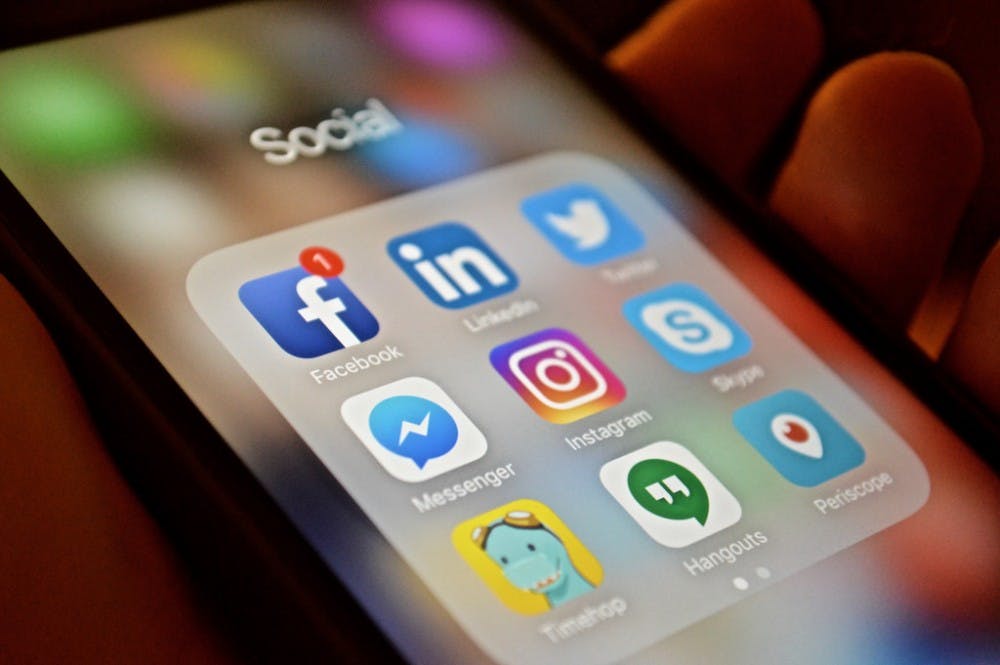My day begins with a scan of Facebook and national news (and, of course, a paper copy of ‘The Prince’). Checking the news reassures me that I am an informed student and citizen — but should it? We’ve all been on Facebook and seen the angry political rants permeated with one-sided, inflammatory propaganda. And these posts are more than just frustrating: they subconsciously define the way we see other people. When we see a person make one of these posts, that person comes to represent that single thought or emotion.
For example, what I write in these columns is detached from the totality of my character and personality. I become my opinion, defined by the mere 800 words of my own hasty convictions. A few months ago, I wrote a column lauding the benefits of Latin. A response to my column alleged that my promotion of the Department of Classics was elitist, while my main claim was simply concerned with the benefits of studying the subject. To her and perhaps other readers, I had defined myself unintentionally. Perhaps there was truth to her statements and I had not seen my own bias, but regardless, this issue is indicative of the larger problem within media wherein opinions are reduced to snippets, making them vulnerable to misinterpretation.
Don’t get me wrong, media is crucial to creating a cross-cultural bridge of thought and awareness around the globe. Ironically, I am harping on media via a biased newspaper column. But I believe news and social media should be reconsidered and used more diligently.
Social media platforms strip people of their multidimensionality. Without the face-to-face interaction, the inherent humanity in all of us is often invisible on the social media platform. Consider pivotal figures such as the presidents, particularly controversial ones like Donald Trump. Regardless of political belief (I am often guilty of ascribing to the popular opinion of Trump’s inadequacy), we forget that these contested individuals are people first and foremost.
This is not a call to give any person a free pass on the grounds that they are only human, but it is a plea to remember that truth in an attempt to preserve our own humanity. For example, we lose sight of the fact that former U.S. President Barack Obama plays basketball in his spare time. Just like us, these people share our same basic joys and struggles. With our generalizations and venomous biases, we can descend into the same inhumanity we ascribe to people like Trump. We rebel against this notion that all of us are people: people of different faiths or of no faith at all, people who are Republicans, people who are Democrats.
It is so crucial to remember that President Trump is a person, President Obama is a person, all of our world leaders are people, fallible and subject to that same human condition that we are. We are all people, we are all products of different environments, we all have dreams and hopes.
Beyond perpetuating misunderstanding, both news and social media are potent tools of manipulation. They can significantly alter how the masses perceive events or even which events are perceived in the first place. Social media takes advantage of our raw bias and twists our perceptions of people and events. What news chooses to tell the populace colors our view of what is “right.”
For example, the Ebola virus topped news headlines in 2013, and it was the source of conversation and fear everywhere. Eventually, its coverage dwindled, and the United States assumed Ebola did likewise — but it didn’t. In fact, the second largest outbreak is occurring in the Congo at this moment, but, at least within my scope, few are talking about it. We subconsciously assign importance to issues based on their prominence in the news. Media tells us what to think and, because of its influence, it is a major provider for the values and morals of younger generations.

Now, when we see others espouse aggressive viewpoints on social media, it is crucial to remain guarded and objective in perceiving their complexity. We should recognize the possibility (probability) of bias and devote more time to exploring lesser-known stories and viewpoints in our world. And as a journalist myself, I hope to push both authors and audiences towards recognizing their common humanity, rather than tarnishing news and social media platforms with flash perceptions based on innate bias.
Emma Treadway is a first-year from Amelia, Ohio. She can be reached at emmalt@princeton.edu.









